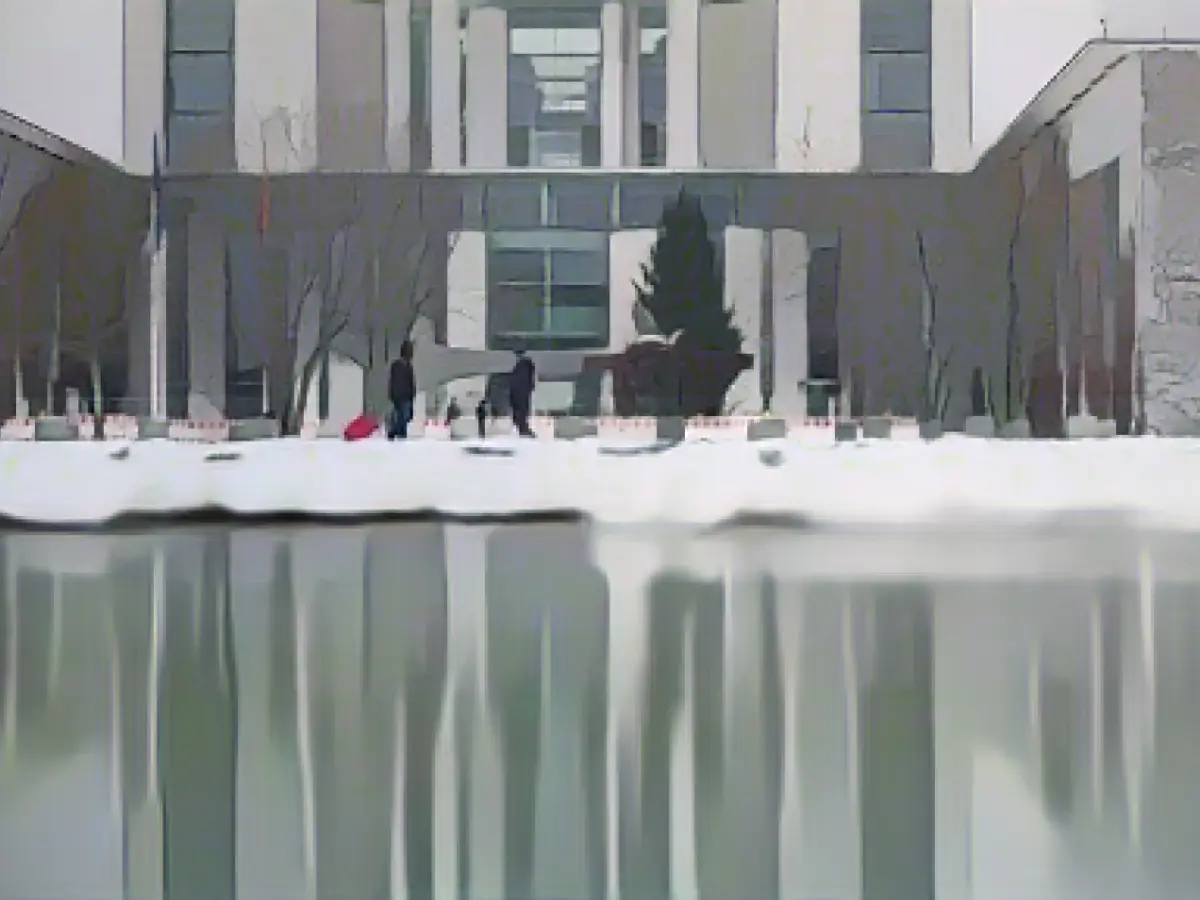Under the spotlight, the three-party coalition government is battling to find a consensus on the 2024 budget, grappling with a substantial financial shortfall resulting from the Federal Constitutional Court's ruling.
Chancellor Olaf Scholz, Vice-Chancellor Robert Habeck, and Finance Minister Christian Lindner are driving the discussions on the billions of euros in deficits. The climate-focused Greens are looking to reduce climate-harming subsidies, while the FDP aims to minimize social spending for savings.
Negotiations are in a critical phase, with Economics and Climate Protection Minister Habeck postponing travel plans to the World Climate Change Conference. Tensions rise as the coalition partners struggle to reach a compromise on budgeting ahead of the Waldstadion SPD party conference and year-end deadline.
Hotly debated is the potential increase in Citizen's Income for more than five million recipients, with the opinion divided among coalition parties. Financial measures like suspending the debt brake again are being considered to tackle the crisis caused by rising energy prices following the Russian invasion of Ukraine.
The SPD General Secretary criticized any cuts in the social sector, while the FDP General Secretary called for reassessment of the Citizen's Income increase due to its financial impact. The ongoing budget crisis could push the 'Traffic light coalition' government into political difficulty if no agreement is reached before Christmas.
In light of this, the CDU/CSU might approve the debt brake suspension for 2023, emphasizing the need for economic aids. The SPD, however, advocates the same strategy for 2024, balancing Ukraine aid with climate investment.
Many Germans are concerned about the rising electricity prices, and it is anticipated that public protests will heighten if the government fails to find a viable solution. The stakes are high for the coalition, and the outcome of these negotiations will significantly impact households and the economy alike.
Source:
Enrichment Data:
The proposed budget cuts and adjustments involve differing strategies among the SPD, FDP, and Greens to address financial shortfalls. Below are some potential policies and initiatives:
SPD's Policies:
- The SPD intends to reform the debt brake to boost public investment and infrastructure projects with a €100 billion debt-financed fund.
- They propound lowering income tax for most households and increasing taxes on the wealthy while maintaining the nation's social security system.
FDP's Policies:
- FDP advocates reducing corporate tax to below 25% and cutting VAT on restaurant food to 7%.
- They propose abolishing the reunification levy for high-income earners and tightening unemployment benefits rules.
- The FDP supports postponing Germany's climate neutrality goals by five years and challenging the EU's plans to phase out combustion-engine vehicles by 2035.
Greens' Policies:
- The Greens back debt brake reform to enhance public funding for infrastructure and the green transition, introducing a special debt-financed public fund.
- They advocate for lowering electricity taxes and offsetting energy prices for select companies while promoting overhead power lines instead of underground cables.
The SPD and Greens see eye-to-eye on debt brake reform and tackling public spending with green and infrastructure initiatives. On the other hand, the FDP aims for tax cuts and less public spending, potentially causing more divisive discussions.








